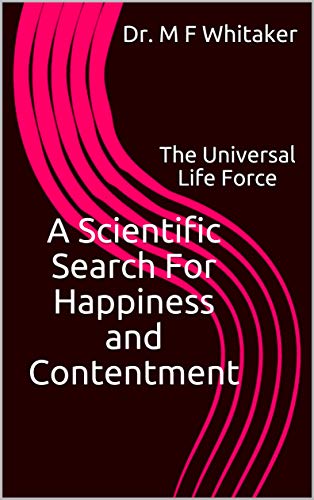
(The author wants to spread his ideas, so you can download this book as a PDF and share it freely.)
My short summary of my dad’s complicated but brilliant unifying theory
My dad basically takes the physical laws of entropy delaying phenomenon in the universe since the big bang (matter formation, electron sharing, molecules, planet formation, the development of complex multi-cellular life, etc.) and extrapolates the pain-pleasure principle in humans as being a comparable form of entropy delaying function in complex life. Thus a lot of human emotional responses and psychology can be viewed through this selfish, self-preservation lens which is an aggregation of “security equations” which the body’s older brain stem and thalamus have a key role in communicating these “security scores” to the newer brain’s cerebral cortex and effect the control of pleasure hormones. The part I found most interesting is that we are already living by the “happiness and contentment” rules of the DNA which seem to be 1. Stay alive. 2. Have (or care for) children 3. Be part of a group/society 4. Have fun. (And playing computer games or crosswords are equal in merit to painting masterpieces or writing a novel) So I don’t need to feel guilty about the little pleasures in life anymore.
A Scientific Search for Happiness and Contentment
Do you ever ask “Why”?
Ever wonder what makes us happy and why happiness never seems constant?
What controls our emotions, desires and drives?
Is there a unifying scientific answer to these questions?
In this book, 40 years in the making, Dr. Michael F. Whitaker explains the answers through physics. His writing takes us from the beginning of the Universe to the origin of life and how a universal force controls and preserves the very existence of the Universe and life itself and how this force permeates every facet of our thoughts, memories and emotions.
He explains how the arrival of DNA, and its selfish desire to survive, has steered our lives and our ambitions by the delivery and restriction of opiates to create a safe and secure environment; how a Tripartite System within the brain enables the DNA to respond to our world and its social, business and political environments, and also how variations in its efficiency can determine our personality. This book also questions the hypothesis that life allows only the ‘Survival of the Fittest’ as suggested by Darwin and it suggests why many have a belief in god. There is the Universal Life Force within us all. By understanding this we can better respond to the ups and downs of our emotions. Through knowing the rules by which happiness and contentment can be gained, we can possibly make our journey through life that little bit more pleasant and understandable.
Gain fascinating new insights into the psychology of the human mind and the mechanics of our emotions.
A Scientific Search For Happiness And Contentment is a must read for anyone who asks ‘Why?’
